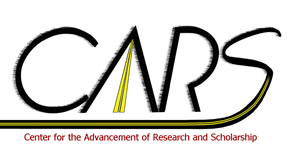Event Title
How Organizational Culture Influences Teachers’ Support of Openly Gay, Lesbian & Bisexual Students
Location
Hart 114
Start Time
11-5-2017 10:10 AM
End Time
11-5-2017 10:25 AM
Description
For this presentation, I analyze the relationship between high schools’ organizational culture and student perceptions of responses to anti-gay language in their school. Using data from 67 interviews with young people who identified as gay, lesbian, or bisexual in high school, I compare teachers’ responses to anti-gay language in schools that do and schools that do not sponsor or promote pro-gay events. My analysis shows that both inclusive and exclusive schools are likely to have students who only use anti-gay rhetoric out of earshot from teachers and staff (e.g., in the cafeteria or locker room). Second, schools without pro-gay events are less likely to have teachers that respond to anti-gay rhetoric. Third, my findings show that interference with anti-gay rhetoric depends on the teacher in both types of academic environments. I conclude this presentation with a discussion of these findings and implications for future research.
How Organizational Culture Influences Teachers’ Support of Openly Gay, Lesbian & Bisexual Students
Hart 114
For this presentation, I analyze the relationship between high schools’ organizational culture and student perceptions of responses to anti-gay language in their school. Using data from 67 interviews with young people who identified as gay, lesbian, or bisexual in high school, I compare teachers’ responses to anti-gay language in schools that do and schools that do not sponsor or promote pro-gay events. My analysis shows that both inclusive and exclusive schools are likely to have students who only use anti-gay rhetoric out of earshot from teachers and staff (e.g., in the cafeteria or locker room). Second, schools without pro-gay events are less likely to have teachers that respond to anti-gay rhetoric. Third, my findings show that interference with anti-gay rhetoric depends on the teacher in both types of academic environments. I conclude this presentation with a discussion of these findings and implications for future research.

Comments
Moderator: James Pearson